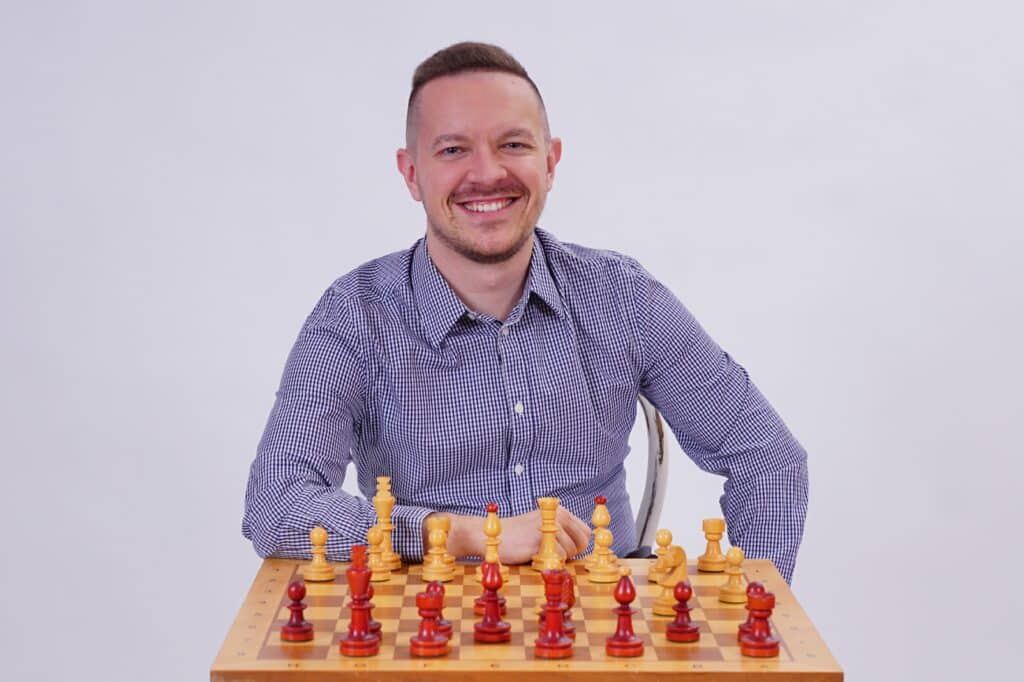By Grandmaster and Chess & Business Strategy Coach
In the world of competitive chess, there are various styles of play, but one of the most rewarding is “ambitious chess.” This approach emphasizes taking calculated risks, aiming for complex positions, and being open to both wins and losses. It’s about challenging yourself, learning from each game, and growing as a player—principles that also have a striking similarity to how businesses achieve long-term success.
Ambitious Chess, Ambitious Business
The similarity between chess and business strategy is quite clear: to achieve greatness, you need to be willing to take risks that are well-calculated, have learned from your experiences, and stayed in step with long-term growth. Just as playing ambitious chess unlocks opportunities for learning and mastery, embracing a long-term, growth-oriented mindset in business enables companies to evolve, innovate, and thrive in a world that is constantly moving.
Both chess and business teach us that playing it safe may offer short-term gains, but it is those who dare to be ambitious—who take risks, learn from mistakes, and play with a vision—who ultimately achieve success over time.
Chess: Playing for the Right Position, Not Just the Result
In chess, many players, especially at the amateur level, prefer short draws. Quick resolutions are often seen as a way to avoid risk, preserve points, and prevent mistakes. It is an understandable strategy for those looking to secure immediate results, but it does not always lead to improvement. A player might win in the short term by avoiding tough positions or intricate challenges but misses the opportunity to grow.
On the other hand, “ambitious chess” encourages players to go beyond safety. It’s okay to lose, but the goal is to create a compelling game, learn from the process, and set yourself up for improvement. Playing ambitiously means pushing for positions that are rich in complexity and opportunities. It’s about testing your limits and embracing the challenge, which ultimately cultivates deeper learning and mastery of the game.
The Long-Term Growth Mindset: Chess as a Metaphor for Business
The same in business can be applied to a strategy. Businesses that only focus on short-term success, such as cutting corners, selecting easy victories, or avoiding tough decisions, may look successful, but these “safe” strategies often prevent long-term growth, can cramp innovation, and even compromise progress.
Ambitious businesses, like ambitious chess players, are focused on long-term planning and improvement; they do not fear failure as a stepping stone to better practice, more refined strategies, or deeper expertise. The best firms take calculated risks when necessary. They are neither reckless nor indifferent to risk: the best understand that breakthroughs and innovations most often come out of risk taking.
Learning from Every Move: Continuous Improvement
Learning is continuous for both chess and business. The game of chess teaches you to learn from each game, be it a win or a loss. Mistakes made in a game are given as an opportunity to study the reasons why the move was done or failed. This is essential for improvement-someone who takes time out to learn from their losses goes on to the top.
Similarly, businesses that are constantly learning from market changes, customer complaints, or even their mistakes can better adapt, innovate, and grow. Successful business leaders don’t fear failure; they establish cultures that can experiment, show resilience, and improve.
The Power of Long-Term Vision
While the temptation of short-term gains is great, both in chess and business, the companies and players who survive and thrive in the long term are those with clear, long-term visions. In chess, this might be a strategic opening that sacrifices material for a larger positional advantage. In business, it might be investing in infrastructure, talent development, or new markets that won’t pay off immediately but are necessary for sustainable growth.
It is a marathon, not a sprint, to be successful in both arenas. Much like a game of chess, where cunningly thought-out moves can set up later advantages, business success is to execute today’s decisions with a view toward tomorrow’s results.



